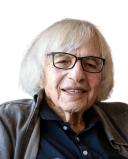Career
Retooling for Coping with the Assault on Democracy
The power of survivors in reasserting reality.
Posted January 4, 2023 Reviewed by Hara Estroff Marano
The United States has been undergoing a catastrophic assault on our democracy, on elections and the rule of law. The assault on democracy is inseparable from an assault on reality. If democracy prevails, we will emerge as survivors of that combined assault. The understanding of ourselves as survivors of societal catastrophe can be a source of insight.
In recent work, I have focused on the significance of the survivor for a society’s recovery from catastrophe. A survivor has suffered trauma and loss, has experienced painful grief. But he or she can derive crucial knowledge from that experience and inspiration for activism.
As in other catastrophes, such as the atomic bombing of Hiroshima or the Nazi death camps, different as they may be from what we are going through in America, the suffering itself can give rise to what I call survivor wisdom. The survivor can bear witness to catastrophic threat. In our case, witnessing makes the lying, conspiracism, and invitations to violence more clear and shows us specific steps to combat them.
Survivor insight becomes a form of activist witnessing. We can view ourselves as on a continuous survivor mission to oppose seditious and antidemocratic behavior, emphasizing nonviolent public discourse and the integrity of democratic elections.
I refer here to a crucial transition from helpless victims to active survivors. Now the need is for those for those who defend democracy to make that transition, to cease being immobilized and become involved survivors. The transition requires what I call “retooling”—a materialistic term that becomes a metaphor for spiritual and psychological energies.
Retooling deals with mourning and collective grief. It seeks to cope with related emotions that have become familiar, including astonishment, confusion, helplessness, fear, despair, rage, and alienation. These emotions are part of our survivor experience and can contribute to a truth-telling survivor mission.
I have personally experienced all of these emotions and shared the widespread sense of a lost world. But I can remember a particular moment when I felt myself changing. When I began to ask myself whether there was a way of coping with our situation, of developing forms of personal and collective retooling.
Beyond acknowledging the emotional toll of what we have been living through, we need to recognize that what is taking place can be considered manipulated conspiracism, in which the conspiratorial idea is made use of as a direct reversal of truth.
An example of such manipulation is the falsification of the violent hammer attack on Paul Pelosi by an extremist who broke into the Pelosi home. Many right-wing commentators have rewritten the incident as Pelosi breaking the window himself from within in order to admit a man with whom he sought to have sexual relations. Trumpists have only to hint at this false narrative to evoke their more encompassing false narrative of the Pelosis as corrupt perpetrators of the election “steal.”
Our retooling as survivors and witnesses involves calling on every possible resource to expose falsehood, assert a true narrative, and do much more. Retooling extends to energetic participation in what the political theorist Nancy Rosenblum calls the enactment of democracy. One becomes part of a collective process: Dealing with individual emotions is never purely an individual matter.
We can join the enactment of democracy in three arenas. One is electoral: supporting candidates in national, state, and local elections, while aggressively combating restrictions of voting and attempts to control and falsify election results.
The second arena for enacting democracy and supporting a truthful narrative is civil society. Here are all the public institutions and voluntary associations, both formal and casual, in which we come together. These can be religious, ethnic, professional, or simply based on mutual interest. They can be a long-standing spiritual congregation or a newly formed social club. In every case they are civil associations in which we can recognize one another as survivors with a mission to combat antidemocratic assaults on reality.
Enacting democracy can apply to a third arena, social movements, which enlist the energies of large numbers of ordinary people to create societal change. A current example is the Black Lives Matter movement, which has insisted on contesting violence against Black Americans and altered public discourse. We may require the emergence of a new movement that speaks to our present disorder in creating a particular narrative of truth and activist witness.
The phenomenon of public health spans all three arenas and has central importance for combating untruth. Its significance lies both in its vital work and in being politicized and weaponized by the falsifiers. Public health has been a target of antidemocratic conspiracism at its most malignant. Public health structures take shape in universities, in civil society, where it is recognized as both medical and social. But public health is also institutionalized in government agencies, and that is where it has especially been politically targeted.
Public health is essential for collective retooling, for setting guidelines in limiting behavior in order to protect society. It must evaluate some of the undesirable consequences of those guidelines (children denied in-person learning or required to wear masks that interfere with teacher-student connection). It seeks to find a compromise between protecting people and harming them by closing down too much of society. In that way our retooling can make simultaneous use of a medical and social perspective that emerges from the heart of civil society and then shapes both electoral and movement politics.
We must retool at every level. We can recognize the extraordinary version of enactment of democracy by the Special Congressional Committee on January 6. The committee worked in democratic fashion: When there was disagreement or doubt, it deliberated and came to a consensus. It recognized the need for knowledge—gathering evidence, weighing arguments, calling witnesses, becoming witnesses themselves, all in the service of reestablishing reality. Its members looked ahead to legislative reforms and were compelled by the narrative of truth to recommend criminal indictments. It matters that the committee was made up of members of the House of Representatives, “the people’s house.” The committee has provided all of us with materials to oppose dangerous distortions of reality.
The committee’s work contributed to the defeat of much extremism in the 2022 elections. But we need to be wary of triumphalism. The Big Lie still fuels dangerous social behavior. It is the apogee of further lies and conspiracism throughout public and social life. We have reason to expect continuing experiences of pain and loss.
Our retooling must include innovative expression of our survivor state. In that way our pain and loss can contribute to constructive change. None of this is easy, but neither is it beyond our psychological and historical capability.




